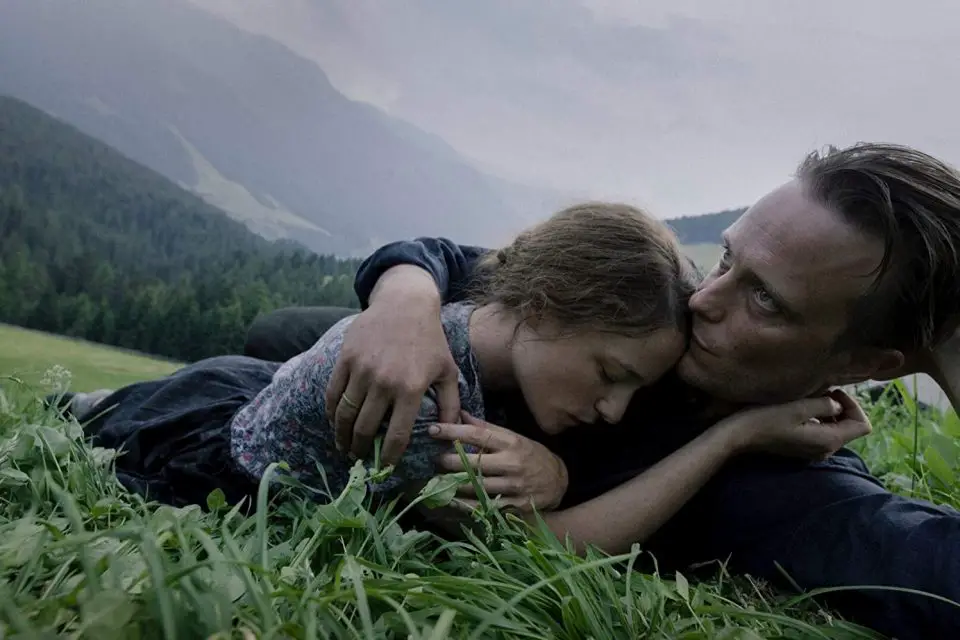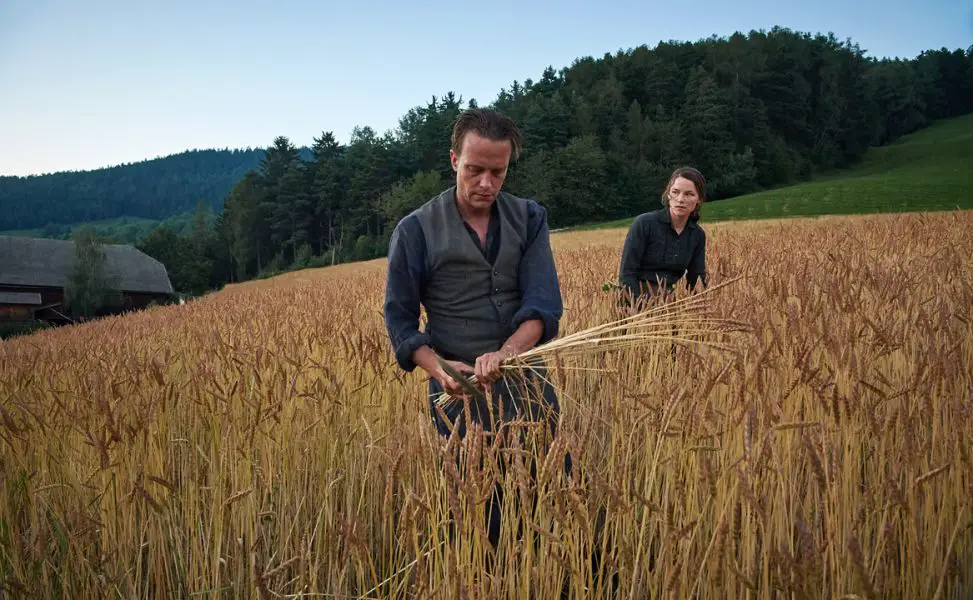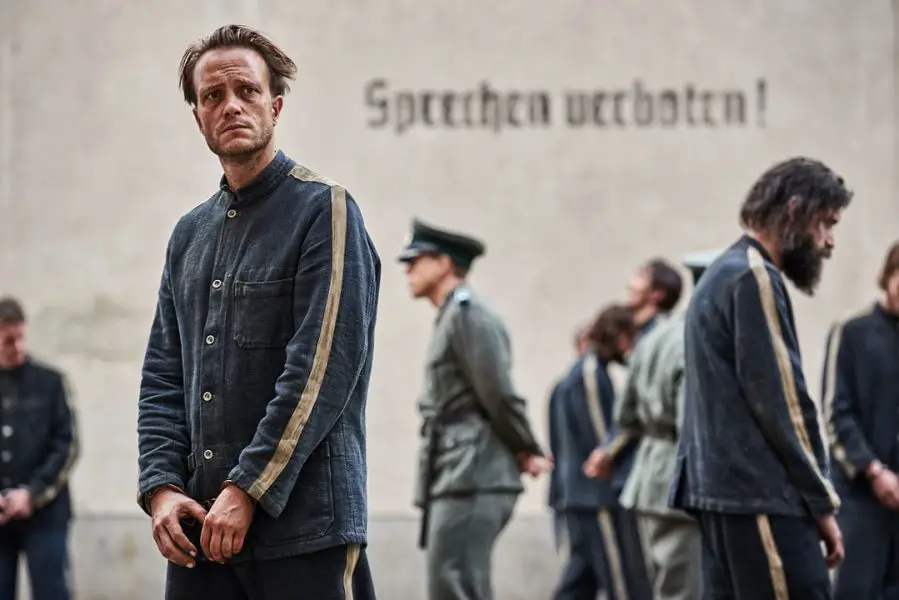‘A Hidden Life’ Review: “Doing What’s Right”

Evaluating the career of Austin, Texas filmmaker Terrence Malick is a difficult task. After a string of acclaimed films, The Tree of Life marked a shift in his film-making style. Specifically, it moved firmly away from the commercial and towards the arthouse only. This shift has confounded some audiences and intrigued other. However, one thing seemed certain: Malick was done telling straightforward narratives. Or so it seemed until A Hidden Life came around.
A Hidden Life has all of Malick’s eccentricities as a writer/director still intact. Breathtaking, borderline indulgent imagery. Voiceovers. A penchant towards the abstract. It’s all there, only this time featuting a strong story. Starting in Austria 1939, A Hidden Life tells the true tale of Franz Jägerstätter (Austin Diehl), a farmer with a moral objection to the war. When he’s called up to the Nazi army, he refuses to swear an oath to Hitler. This begins a history of imprisonment and suffering that he can only get through by knowing what he’s doing is the right thing.
The idea of doing the right thing is a simple branching point that Malick can explore from every avenue. First, however, he introduces us to the Austrian countryside. Thanks to Jörg Widmer’s free-flowing camera, the lush green hills feel like something out of paradise. Backed by an elegant, sweeping score courtesy of the great James Newton Howard, Malick lets the setting breathe.
Perhaps he lets it breathe a bit too much. A Hidden Life clocks in at about 174 minutes, an already taxing watch made worse by a snail’s pacing. Malick opts to tell the whole story, and your enjoyment will entirely depend on how long you want to spend with these characters. For myself, I was invested even through the quieter lulls in the narrative. This is because Malick makes the most of his actors in this film. Diehl is heart-wrenching as Franz, with each expression showing a deep sadness at what he is doing. Likewise, Valerie Pachner as his wife Franziska Jägerstätter carries the same sadness while also standing by her husband’s decisions. In doing so, she recognizes that they could not live betraying their own values.
Their relationship is the heart of the movie. Bolstered by Malick’s predisposition for voice-over, we get to hear the inner conflict of the characters. Making a stand when the chance of impact seems so low can weigh heavy on the soul, and we feel every bit of weight. A Hidden Life itself changes to reflect that weight, as Franz goes to prison for his objections. The lush greens give way to harsh greys. The seemingly friendly townsfolk he used to know turn cruel to Franziska in his absence as he himself encounters the inhumane, sadistic nature of his captors.
The nature of complacency with regimes for fear of what would happen if you speak out is full on display here. Franz sees people betray decency out of fear. The only kindness he finds is in letters from his wife and a visit from a kindly priest from his village (Tobias Moretti). What he goes through is demoralizing, to the point where you almost want him to submit and just end his suffering. Unlike other films exploring the nature of heroism, such as Richard Jewell, where their act is seen as good, Franz only gets pain from what he’s doing.
And I think that’s what Malick is trying to show us. The film invokes that change not through immediately world-changing acts, but through the hidden sufferings of people who dare to stand up for what they believe, no matter the consequences. Eventually, these acts will all pile up and lead to a shift in the tides. In today’s era when hatred and complacency are both rampant, something about this film really touched me. A Hidden Life shows one person’s dedication to a righteous cause, and one can only hope it inspires others to have the conviction to commit to their own causes. I have a feeling it will. –James Preston Poole
Rating: 8/10
A Hidden Life is now in theaters.





